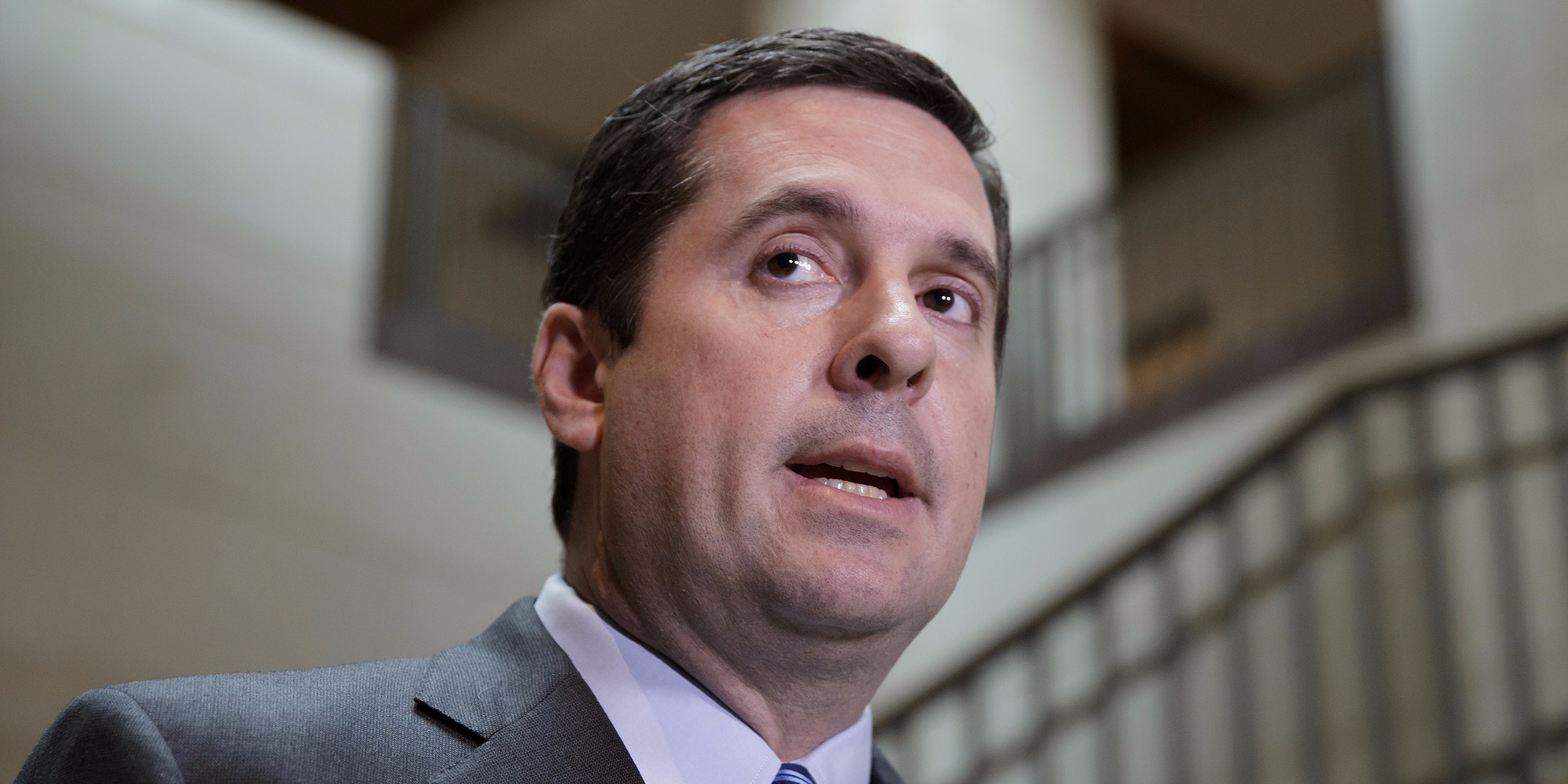- Republicans on the House Intelligence Committee on Thursday released a report detailing their findings in the panel’s Russia investigation.
- The report makes several incomplete assertions that seek to distance President Donald Trump and his 2016 campaign from allegations of collusion with Moscow.
- Republicans also made numerous suggestions to shore up the US’s response to Russia’s aggression, including ramping up cyber defenses and empowering state and local officials to secure critical election infrastructure.
- They also suggested Congress repeal the Logan Act, a centuries-old law that some have speculated may be used to prosecute members of the Trump campaign.
Republicans on the House Intelligence Committee on Thursday released a report detailing their findings in the panel’s Russia investigation, and it makes several incomplete assertions that obscure facts.
It said Russia was responsible for carrying out cyberattacks against the US, disseminating hacked emails stolen from the Democratic National Committee, and launching a social media disinformation campaign – findings that largely echo parts of the US intelligence community’s assessment of Russia’s interference in the 2016 election.
But Republicans’ conclusions about whether President Donald Trump’s campaign colluded with Moscow left out critical context and painted an incomplete picture of the scope of the campaign’s contacts with Russians.
Among other things, Republicans on the committee said:
- The so-called Steele dossier “formed an essential part” of the Justice Department’s application to surveil a former Trump campaign aide.
- None of the witnesses who testified before the committee provided evidence of “collusion, coordination, or conspiracy” between the campaign and Russia.
- There was “no evidence” that Trump’s business dealings before the campaign “formed the basis for collusion” during it.
- Paul Manafort, the former Trump campaign chairman, was not indicted on charges related to collusion.
- A controversial change to the GOP’s platform during the campaign that called for watering down the US’s aid to Ukraine to fend off Russian aggression signified a stronger position toward Russia.
- Attempts by George Papadopoulos, a former Trump campaign aide, to facilitate meetings between Trump and Russia during the campaign were unsuccessful.
- Donald Trump Jr. attended a meeting in June 2016 at Trump Tower with two Russian lobbyists offering him dirt on Hillary Clinton, the 2016 Democratic presidential nominee, but did not ultimately receive the material.
- Trump Jr. met with a Russian government official – believed to be the Russian politician and banker Alexander Torshin – during the National Rifle Association’s 2016 convention but did not discuss the US election.
- None of the meetings between Trump associates and Russian government representatives amounted to evidence of “collusion, coordination, or conspiracy” with Russia.
- Russia’s efforts to set up a “back channel” with the Trump team after the election indicates there was no collusion during the race.
- Fusion GPS, the opposition-research firm that produced the Steele dossier, once also worked for Russian interests.
- Fusion GPS was hired by a law firm representing Democrats and the Clinton campaign.
- National-security leaks about Russia that were damaging to Trump increased after Election Day.
- The former intelligence chief James Clapper may have misled investigators about his contacts with the media.
The committee recommended Europe and the US shore up their cyber defenses and lessen economic dependence on Russia to counter its aggression. It also suggested Congress take a larger role in addressing Russia’s cyber activity and empower state and local authorities to secure election infrastructure.
Notably, Republicans also recommended Congress repeal the Logan Act, which makes it illegal for private citizens to conduct policy negotiations on behalf of the US.
Several of Trump's associates - including Michael Flynn, the former national security adviser - have been accused of violating the Logan Act.
Flynn pleaded guilty in December to one count of making false statements to investigators about his conversations with Sergey Kislyak, then Russia's ambassador to the US. According to a court filing, a "very senior member" of the Trump transition team directed Flynn's interactions with Kislyak - a revelation that observers said could amount to a violation of the Logan Act.
The New York Times reported last year that some had suggested the Logan Act was moot based on a legal doctrine called desuetude, which stipulates that a law may become null and void if it goes without use for a long time. Only two people have been indicted under the Logan Act, and neither indictment resulted in a conviction.
Shortly after Republicans released their report, the ranking Democrat on the committee, Rep. Adam Schiff, responded in a tweet.
"Russian interference was successful because the beneficiary of their help has refused to condemn it," he said. "The lack of a serious investigation by the GOP is an invitation to the Russians to do it again."

